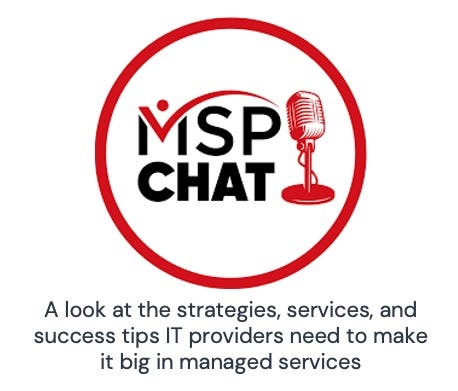Huntress Has “Big Stuff” Coming with Microsoft
How big remains top secret, but we do have hints.
Channelholic regulars may recall my launch coverage of Syncro’s XMM offering. They may recall as well that the Microsoft 365 management piece of that RMM/PSA/M365 management solution is derived entirely from Microsoft software and that future additions to the system will use Microsoft services as well, primarily due to Syncro CEO Michael George’s ironclad conviction that the ultimate victor in any SMB software market Microsoft competes in—very much including security—will be Microsoft.
“I think you should assume that we are making a big bet on Microsoft being the dominant platform and provider in this space,” he told us back in May.
So too, it turns out, is Huntress. Not that you’d know it based on the relatively muted press release the security vendor published last week about a new agreement with Microsoft to get SMBs paying for unused Microsoft Defender solutions via a Microsoft 365 subscription signed up for managed security from Huntress, which supports Microsoft Defender for Endpoint, Defender for Business, and Defender Antivirus. Huntress has brought some 225,000 previously unprotected endpoints under management that way this year alone, and believes there are close to a million others out there among its existing customers alone.
“I just hate to see people wasting budget,” says CEO Kyle Hanslovan (pictured above). “It’s just freaking crazy that they’re paying for products that they’re not leveraging.”
Don’t be fooled though, Hanslovan continues. Closing that gap may be the starting point for his newly deepened relationship with Microsoft but it’s not where the two companies are ultimately headed.
“We’re being a little bit cagey in regards to how much we share today,” Hanslovan says.
“There’s some big stuff, but Microsoft’s just not ready to talk about that stuff yet.”
Big stuff? How big? Hanslovan, it was clear during our conversation, would sooooooo like to answer that question but can’t without angering a hugely strategic partner. He can and did drop a few hints, however:
1. It involves closer integrations with Microsoft than most security vendors have, which Huntress will use to provide better protection than most security vendors can.
“There’s some pretty deep collaboration giving us access to data very fast,” Hanslovan suggests. “We’re starting to actually open up new APIs.” The result, he adds, will be a distinct edge over less privileged competitors.
2. Huntress’s current all-AWS infrastructure can’t support those new integrations, so the company will port its entire backend tech stack over to Microsoft Azure.
“It’s probably going to take me a full year to do this migration, but the upsides of being on Azure are substantial,” Hanslovan says.
3. Those upsides could include what sound like new and perhaps jointly delivered products of some sort. “The next part is to collaborate and build technology together,” Hanslovan says. “That’s where we think this one plus one equaling way more than two is really going to play out.”
And no, Hanslovan emphasizes to those who may be wondering, Microsoft won’t be buying Huntress or investing in it like it did with Veeam earlier this year. “There’s no M&A, nothing crazy like that,” he says. Nor will the agreement result in Huntress being Microsoft’s one and only go-to in any security categories going forward.
“I don’t think Microsoft does exclusives,” Hanslovan says.
Nor does Huntress. “We’re never going to be a Microsoft-only shop,” Hanslovan states. Yet the deal makes sense for everyone involved just the same starting with Huntress itself, Hanslovan insists. Hackers, he notes, have three targets in their sights these days: endpoints, cloud identities, and AI.
“Microsoft has the dominant market share with the Windows operating system, they have the dominant market share with Microsoft 365 for the identity systems, and they have the largest investment in OpenAI, which is the largest, most established AI system,” Hanslovan says. “You’d be crazy not to service the biggest, most vulnerable, and highly targeted markets.”
Huntress’s MSP partners will benefit too every time a client exchanges a security solution they’re paying for with a Defender equivalent included in their Microsoft 365 license.
“If I can get better [Defender] adoption, well, now I’m freeing up budget, and now I can help my partners actually make a difference, make more money, maybe invest in technology,” Hanslovan says.
Microsoft, finally, will come out ahead as well by forging stickier relationships among M365 users. “Microsoft is realizing that if people are fully using their stack they might not churn off that revenue,” says Hanslovan.
Time will tell if everything plays out as he hopes and exactly what the two companies have in store. Whatever it is, though, has more than a handshake behind it.
“I wouldn’t move from Amazon Web Services to Azure if this was theoretical,” Hanslovan says. “It’s a locked-up contract, a done deal.”
SHARE
Hanslovan in his own words
We didn’t talk about Microsoft, but Hanslovan was on MSP Chat, the podcast I co-host, just a few months ago. That episode is available here. Others featuring equally prominent industry luminaries can be found here.




